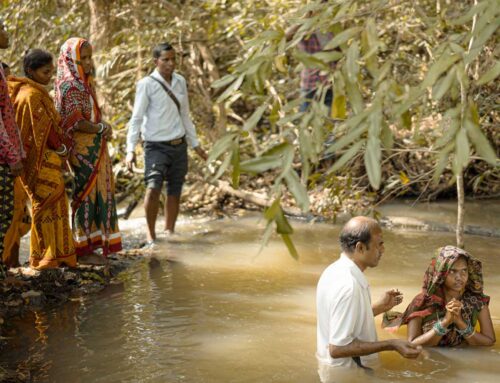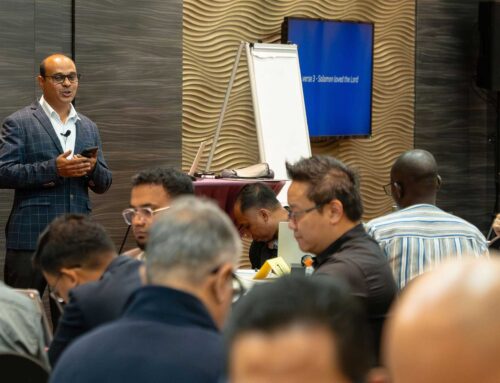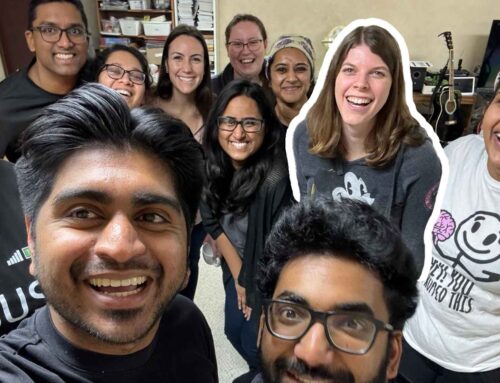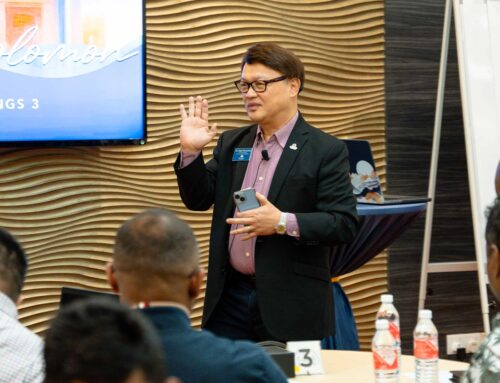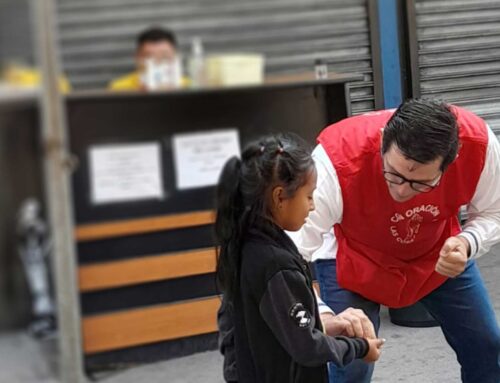Come, Let Us Reason Together
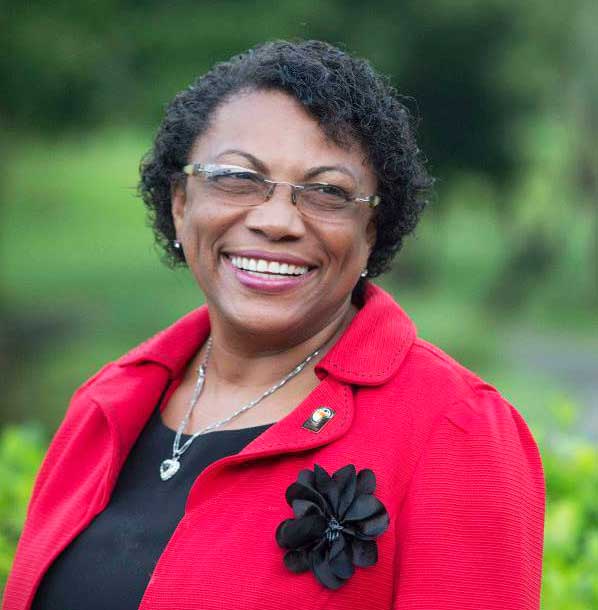
Haggai leader Dr. Veronica Evelyn
How does a church balance religious freedom with the health of a congregation?
In the spring of 2020, the COVID-19 pandemic created a sensitive situation for churches across the world. Gather, and risk the spread of infection, or shelter in place and lose the opportunity for corporate worship. While some governments navigated this tension with care and nuance, others imposed harsh restrictions that effectively halted church life.
Out of a desire to “flatten the curve,” churches in Barbados patiently sheltered in place through the spring, connecting online and in smaller groups where possible. Barbadian believers eagerly anticipated the government’s guidelines for reopening churches, but were soon disappointed.
Services would be limited to one hour. No communion, no baptisms, no christening, no choirs, and no children’s programming. The church they would “return” to would not look like church at all.
Concerned churchgoers wondered: where does public health end and religious discrimination begin? That is where a group of Haggai leaders stepped into the conversation.
Upon release of the guidelines, religious leaders were given the opportunity to challenge the new directives. Using the training from her Haggai Leader Experience, Dr. Veronica Evelyn from Barbados called on leaders throughout the country and the world to gather online to pray. She asked her cohorts in other countries to intercede for the country. She and the other Barbadian leaders reached out to contacts throughout the Haggai network who had faced similar conflicts. Through this network, they sought counsel and strategized a peaceful counterproposal to the government’s policies.
Together, with other key religious bodies in Barbados, the Haggai leaders approached the Barbadian attorney general. They respectfully outlined their concerns and offered suggestions that would allow church services to be less restricted, without compromise to the health of the nation.
The thorough, thoughtful response moved the Barbadian government to adjust the guidelines. Just a week after the initial announcement, the government revised their restrictions to allow for communion and other in-person activities, such as teaching and singing, as long as social distance and mask protocols are maintained.
The government guidelines could have created tension and discord with the Christian community, but the measured response of Haggai leaders brought about a peaceful compromise and, in turn, gave those countering the guidelines and opportunity to demonstrate the Gospel principles of peace and reconciliation.
Come, Let Us Reason Together

Haggai leader Dr. Veronica Evelyn
How does a church balance religious freedom with the health of a congregation?
In the spring of 2020, the COVID-19 pandemic created a sensitive situation for churches across the world. Gather, and risk the spread of infection, or shelter in place and lose the opportunity for corporate worship. While some governments navigated this tension with care and nuance, others imposed harsh restrictions that effectively halted church life.
Out of a desire to “flatten the curve,” churches in Barbados patiently sheltered in place through the spring, connecting online and in smaller groups where possible. Barbadian believers eagerly anticipated the government’s guidelines for reopening churches, but were soon disappointed.
Services would be limited to one hour. No communion, no baptisms, no christening, no choirs, and no children’s programming. The church they would “return” to would not look like church at all.
Concerned churchgoers wondered: where does public health end and religious discrimination begin? That is where a group of Haggai leaders stepped into the conversation.
Upon release of the guidelines, religious leaders were given the opportunity to challenge the new directives. Using the training from her Haggai Leader Experience, Dr. Veronica Evelyn from Barbados called on leaders throughout the country and the world to gather online to pray. She asked her cohorts in other countries to intercede for the country. She and the other Barbadian leaders reached out to contacts throughout the Haggai network who had faced similar conflicts. Through this network, they sought counsel and strategized a peaceful counterproposal to the government’s policies.
Together, with other key religious bodies in Barbados, the Haggai leaders approached the Barbadian attorney general. They respectfully outlined their concerns and offered suggestions that would allow church services to be less restricted, without compromise to the health of the nation.
The thorough, thoughtful response moved the Barbadian government to adjust the guidelines. Just a week after the initial announcement, the government revised their restrictions to allow for communion and other in-person activities, such as teaching and singing, as long as social distance and mask protocols are maintained.
The government guidelines could have created tension and discord with the Christian community, but the measured response of Haggai leaders brought about a peaceful compromise and, in turn, gave those countering the guidelines and opportunity to demonstrate the Gospel principles of peace and reconciliation.
Come, Let Us Reason Together

Haggai leader Dr. Veronica Evelyn
How does a church balance religious freedom with the health of a congregation?
In the spring of 2020, the COVID-19 pandemic created a sensitive situation for churches across the world. Gather, and risk the spread of infection, or shelter in place and lose the opportunity for corporate worship. While some governments navigated this tension with care and nuance, others imposed harsh restrictions that effectively halted church life.
Out of a desire to “flatten the curve,” churches in Barbados patiently sheltered in place through the spring, connecting online and in smaller groups where possible. Barbadian believers eagerly anticipated the government’s guidelines for reopening churches, but were soon disappointed.
Services would be limited to one hour. No communion, no baptisms, no christening, no choirs, and no children’s programming. The church they would “return” to would not look like church at all.
Concerned churchgoers wondered: where does public health end and religious discrimination begin? That is where a group of Haggai leaders stepped into the conversation.
Upon release of the guidelines, religious leaders were given the opportunity to challenge the new directives. Using the training from her Haggai Leader Experience, Dr. Veronica Evelyn from Barbados called on leaders throughout the country and the world to gather online to pray. She asked her cohorts in other countries to intercede for the country. She and the other Barbadian leaders reached out to contacts throughout the Haggai network who had faced similar conflicts. Through this network, they sought counsel and strategized a peaceful counterproposal to the government’s policies.
Together, with other key religious bodies in Barbados, the Haggai leaders approached the Barbadian attorney general. They respectfully outlined their concerns and offered suggestions that would allow church services to be less restricted, without compromise to the health of the nation.
The thorough, thoughtful response moved the Barbadian government to adjust the guidelines. Just a week after the initial announcement, the government revised their restrictions to allow for communion and other in-person activities, such as teaching and singing, as long as social distance and mask protocols are maintained.
The government guidelines could have created tension and discord with the Christian community, but the measured response of Haggai leaders brought about a peaceful compromise and, in turn, gave those countering the guidelines and opportunity to demonstrate the Gospel principles of peace and reconciliation.


